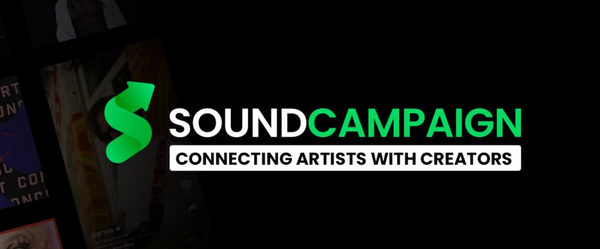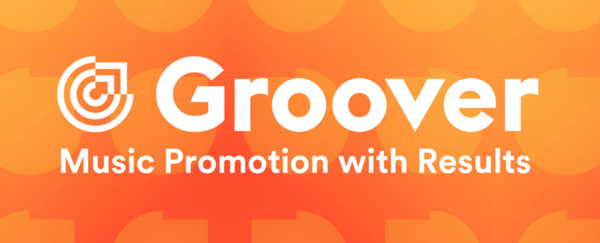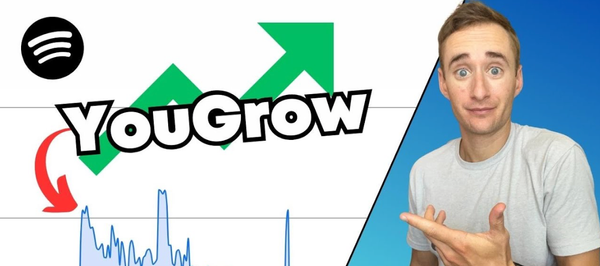The Ultimate Guide on How to Send a Demo to Record Labels in 2025

Sending your music demo to record labels can seem like a big deal, especially in 2025. With so many artists trying to get their break, it feels like a crowded space. But don’t worry, there’s a way through it. This guide will walk you through the whole process, from picking the right songs to following up with labels. Whether you’re aiming for a major label or an indie one, these steps will help you get noticed.
Key Takeaways
- Pick your best tracks. Quality beats quantity every time.
- Research labels that fit your style. Know who you're sending to.
- Craft a short, personal pitch. Make it about them, not just you.
- Use the right platforms and follow guidelines. Keep it professional.
- Be patient and persistent. Follow up, but don't be pushy.
Choosing the Right Tracks for Your Demo
Why Quality Matters More Than Quantity
When we're putting together a demo, it's tempting to throw in every track we've ever made. But let's be real—quality always beats quantity. One killer song can make a bigger impact than five mediocre ones. The key is to make sure each track is polished to perfection. This means having clean recordings and professional mixing and mastering. If a track sounds rough around the edges, it's better to hold off until it's ready. Remember, the folks at the record labels are looking for standout pieces, so give them something unforgettable.
The Art of Selecting Standout Songs
Choosing the right songs for your demo is like picking the best outfit for a first date. You want to show off your unique style and personality. Start by asking yourself what makes each song special. Is it the catchy hook, the heartfelt lyrics, or the innovative production? Whatever it is, make sure it shines through. Here's a simple checklist to help:
- Does the song represent my sound and style?
- Is the production quality top-notch?
- Will it grab attention in the first 30 seconds?
Avoiding Common Demo Mistakes
We've all been there—sending out demos only to hear crickets in response. Often, it's because of common pitfalls that are totally avoidable. First, don't send unfinished tracks. A&R reps aren't there to imagine what your song could be; they want to hear what it is. Second, avoid overloading your demo with too many songs. Stick to your best 3-4 tracks. Lastly, make sure your contact info is clear and easy to find. You'd be surprised how many artists miss this step, and it can make all the difference when a label wants to reach out.
"Choosing the right tracks for your demo is about showcasing your best work and making a memorable impression. It's not just about the music; it's about telling your story through sound."
For more tips on finding labels that match your style, keep digging into our guide.
Researching and Targeting Record Labels
Finding Labels That Match Your Style
So, you’ve got your tracks ready, and you’re pumped to get them out there. But hold up, not all record labels are the same. We need to find those that vibe with our music. Think of it like dating; you want to find the perfect match. Start by identifying the genre of your music and look for labels that specialize in it. Platforms like LabelRadar can be super handy here, letting you filter labels by genre. Once you have a list, dig a bit deeper. Check out their past releases and the artists they’ve signed. This will give you a sense of whether they align with your musical goals and values. Maybe you’re eyeing big names like Armada or Monstercat—make sure they’re the right fit for you.
Understanding Major vs. Indie Labels
Alright, now that we’ve got some potential suitors, let’s break down the difference between major and indie labels. Major labels are like the big leagues; they have more resources, but they’re harder to impress. Indie labels, on the other hand, might offer more creative freedom and a closer relationship. It’s crucial to weigh the pros and cons of each. Do you want the massive reach of a major label, or are you after the personal touch of an indie? Understanding this will help you tailor your approach and expectations.
Using Online Tools to Your Advantage
In 2025, technology is our best friend when it comes to conducting market research. Platforms like Groover and LabelRadar have made it easier than ever to connect with the right people. Use these tools to submit your demos, but also to gather intel on the labels you’re interested in. They often provide insights into what labels are looking for and how you can stand out. Plus, many of these platforms offer feedback from industry professionals, which is gold when you’re trying to improve your pitch. So, let’s use these resources to give ourselves the best shot at getting noticed.
Crafting the Perfect Pitch

Personalizing Your Message
When we're reaching out to record labels, it's crucial to make each message personal. Think of it like writing a letter to an old friend. We need to show them that we know who they are and why we're connecting. Mention something specific about the label that aligns with our music style. This shows we've done our homework and aren't just spamming every label in the industry.
Keeping It Short and Sweet
Time is precious, especially for busy label execs. So, let's keep our pitch short and sweet. Focus on the essentials: who we are, what our music is about, and why it fits their label. A few well-chosen words can make a bigger impact than a long-winded essay. Remember, less is more!
Highlighting Your Unique Selling Points
What makes us stand out from the crowd? That's what we need to highlight in our pitch. Whether it's our unique sound, a recent accolade, or an upcoming gig, we should make sure to mention it. This is our chance to shine and show the label why we're worth their time.
Crafting the perfect pitch is like creating a hit song. It needs to be catchy, memorable, and leave the listener wanting more. Let's make sure our pitch hits all the right notes and gets us noticed.
Submitting Your Demo: The Do's and Don'ts
Choosing the Right Submission Platform
Alright folks, let's talk platforms. Picking the right one can make or break your demo submission. Not all platforms are created equal, so it's crucial to find one that aligns with your music style and target labels. For a streamlined process, consider using platforms like Groover or LabelRadar. These platforms not only connect you directly with labels but also ensure your demo doesn’t get lost in the shuffle. Plus, some even offer feedback within a week!
Following Label Guidelines
Here's the deal—labels have rules for a reason. Whether it's the file format or the submission method, stick to what they ask. Most labels prefer email or submission pages over social media DMs. Ignoring these guidelines is a surefire way to have your demo tossed aside. So, before you hit send, double-check their instructions on their website or social media pages.
The Importance of Private Links
When it comes to sharing your music, private links are your best friend. Platforms like SoundCloud, YouTube, or Dropbox offer private links that make it easy for labels to listen and share your tracks internally. Make sure these links have download options enabled. This way, if someone at the label digs your sound, they can easily pass it up the chain.
Let's face it, submitting a demo can be nerve-wracking. But by choosing the right platform, following guidelines, and using private links, you're setting yourself up for success. Remember, persistence and patience are key in this game. Keep pushing, and you'll eventually catch the right ear.
Following Up and Building Relationships
When and How to Follow Up
Alright, so you've sent off your demo and you're sitting there, biting your nails, waiting for a response. Here's the thing: it's totally normal not to hear back right away. Record labels are swamped with submissions. But don't sweat it. Give it a couple of weeks, and if you still haven't heard anything, it's time to gently nudge them. A polite follow-up email can remind them of your submission without being pushy. Just forward your original message and add a friendly note asking if they've had a chance to listen.
Handling Rejection Gracefully
Rejection stings, no doubt about it. But it's also part of the game. If you get a "no," don’t take it personally. Instead, thank them for their time and ask if they have any feedback. This not only shows professionalism but also keeps the door open for future submissions. Remember, even the biggest stars faced rejection at some point.
Turning Feedback into Opportunities
Sometimes, labels might respond with feedback instead of an offer. This is gold! Use their insights to tweak and improve your music. It’s like getting a free mini-consultation from industry pros. And who knows? Maybe your next demo will hit all the right notes. Keep refining your craft and stay positive. Every bit of feedback is a stepping stone to success.
"Persistence is key in this industry. Keep knocking on doors, and eventually, one will open. Stay positive and keep improving your craft."
- Collect business cards and follow up with a polite email that includes a link to your music, expressing interest in potential opportunities.
In the end, it’s all about building relationships. Be patient, be persistent, and most importantly, be yourself.
Leveraging Technology for Demo Submissions

Using Platforms Like Groover and LabelRadar
In 2025, sending your demo to record labels isn't just about emailing a track and hoping for the best. We've got some killer platforms like Groover and LabelRadar that make the whole process smoother. These platforms are game-changers for any musician looking to get noticed.
- Groover: For just a couple of bucks, you can pitch your song to over 3,000 curators, including labels. If you don't hear back in a week, your credits are refunded. It's like having a direct line to the inboxes of those who matter.
- LabelRadar: This one's all about efficiency. You upload your track, and it gets in front of A&Rs who are actively looking for new music. It's less about hoping someone hears your track and more about knowing they will.
The Role of Social Media in Music Discovery
Social media isn't just for sharing memes and selfies; it's where music discovery happens. From TikTok challenges to Instagram stories, these platforms can skyrocket your exposure.
- TikTok: Get creative with short videos featuring your music. If it catches on, it can go viral faster than you can say "record deal."
- Instagram: Use stories and reels to give followers a taste of your music and personality.
- YouTube: A classic, but still effective. Upload music videos, live sessions, and behind-the-scenes content to engage your audience.
Staying Updated with Industry Trends
Keeping up with the latest trends is crucial if you want to stay relevant. Whether it's the newest genre taking over playlists or the latest tech in music production, you gotta stay in the loop.
- Follow Music Blogs: Sites like Discover the key product demo trends influencing success in the SaaS industry for 2025 keep you informed about what's hot and what's not.
- Join Online Communities: Forums and groups on Reddit or Facebook can be goldmines for insider info and tips.
Staying ahead of the curve isn't just about knowing what's trending; it's about understanding how these trends can work for you. Embrace the new, but keep your unique style front and center.
Using technology can really help you submit your demos more easily. By taking advantage of online tools and platforms, you can make the process smoother and faster. Don't miss out on the chance to improve your submissions! Visit our website to learn more about how we can help you succeed!
Wrapping It Up
So there you have it, folks! Sending your demo to record labels in 2025 might seem like a big deal, but with the right steps, it's totally doable. Remember, it's all about making your music shine and getting it in front of the right people. Don't stress too much if you don't hear back right away—patience is key. Keep refining your sound, stay persistent, and who knows? Your big break might be just around the corner. Good luck out there, and keep those tunes coming!
Frequently Asked Questions
How do I choose the best songs for my demo?
Pick your strongest tracks that show your style and talent. Make sure they are polished and ready to impress.
Why should I research record labels before sending my demo?
Knowing which labels fit your music style increases your chances of getting noticed and signed.
What should I include in my pitch to a record label?
Keep it personal and clear. Tell them why you love their label and why your music fits their vibe.
How do I submit my demo the right way?
Follow each label's submission guidelines and use platforms they prefer. Avoid sending unsolicited demos.
When is it okay to follow up after sending a demo?
Wait a few weeks before following up. Be polite and remind them of your submission.
How can technology help with demo submissions?
Use online platforms like Groover and LabelRadar to reach labels easily and track your submissions.





